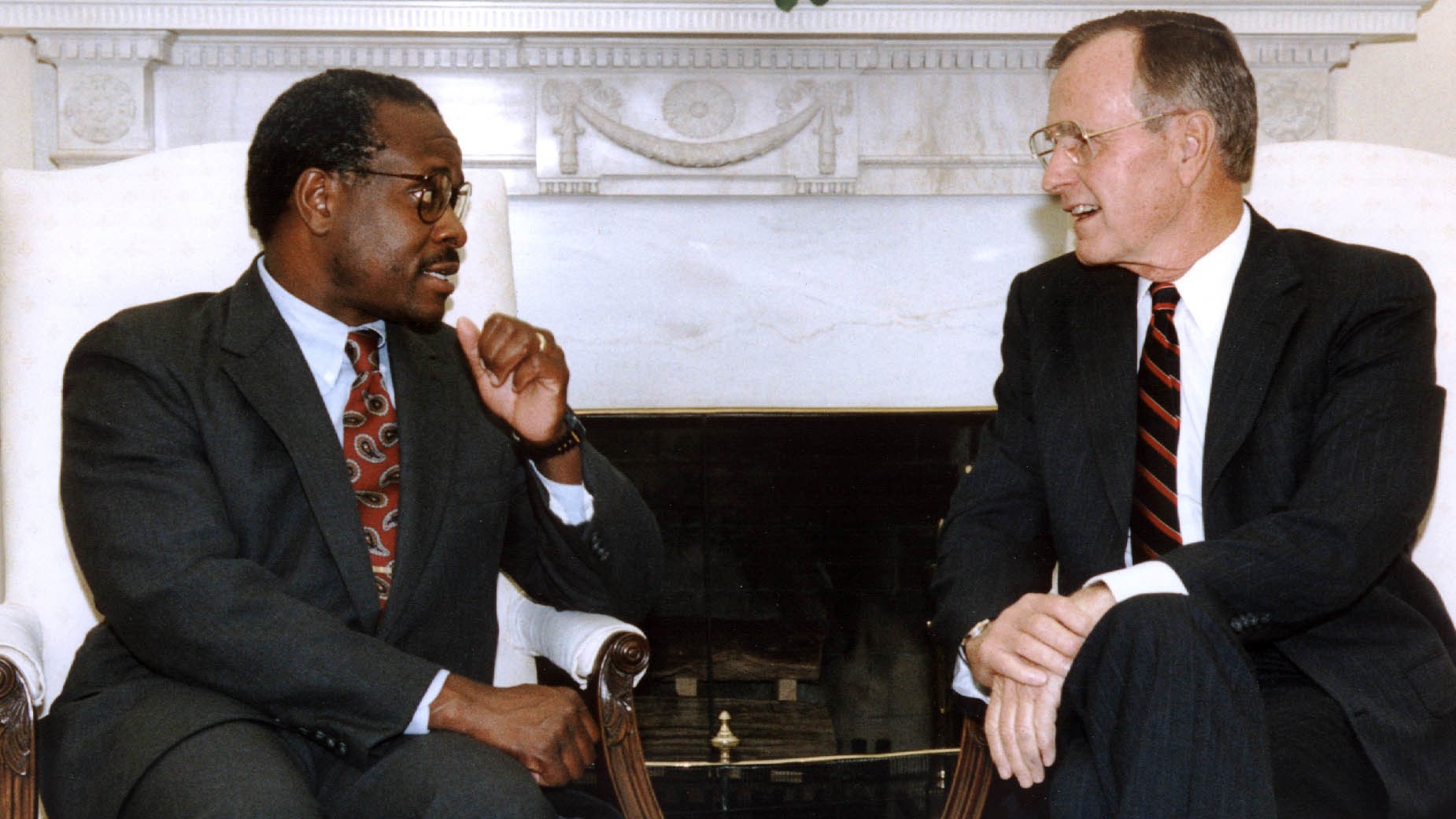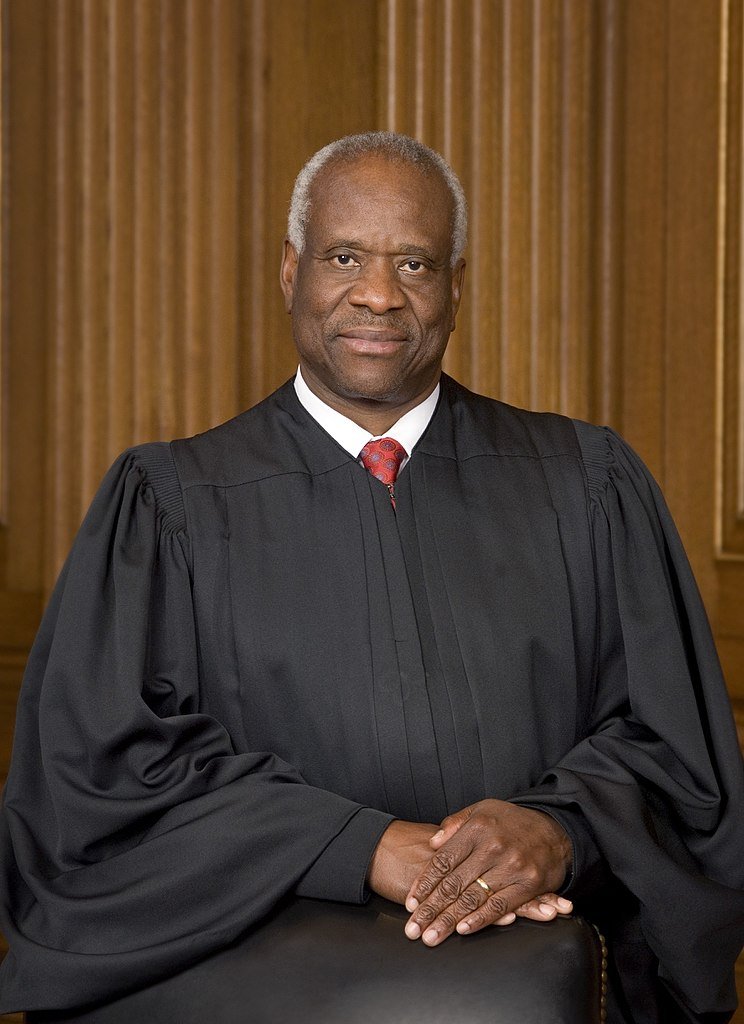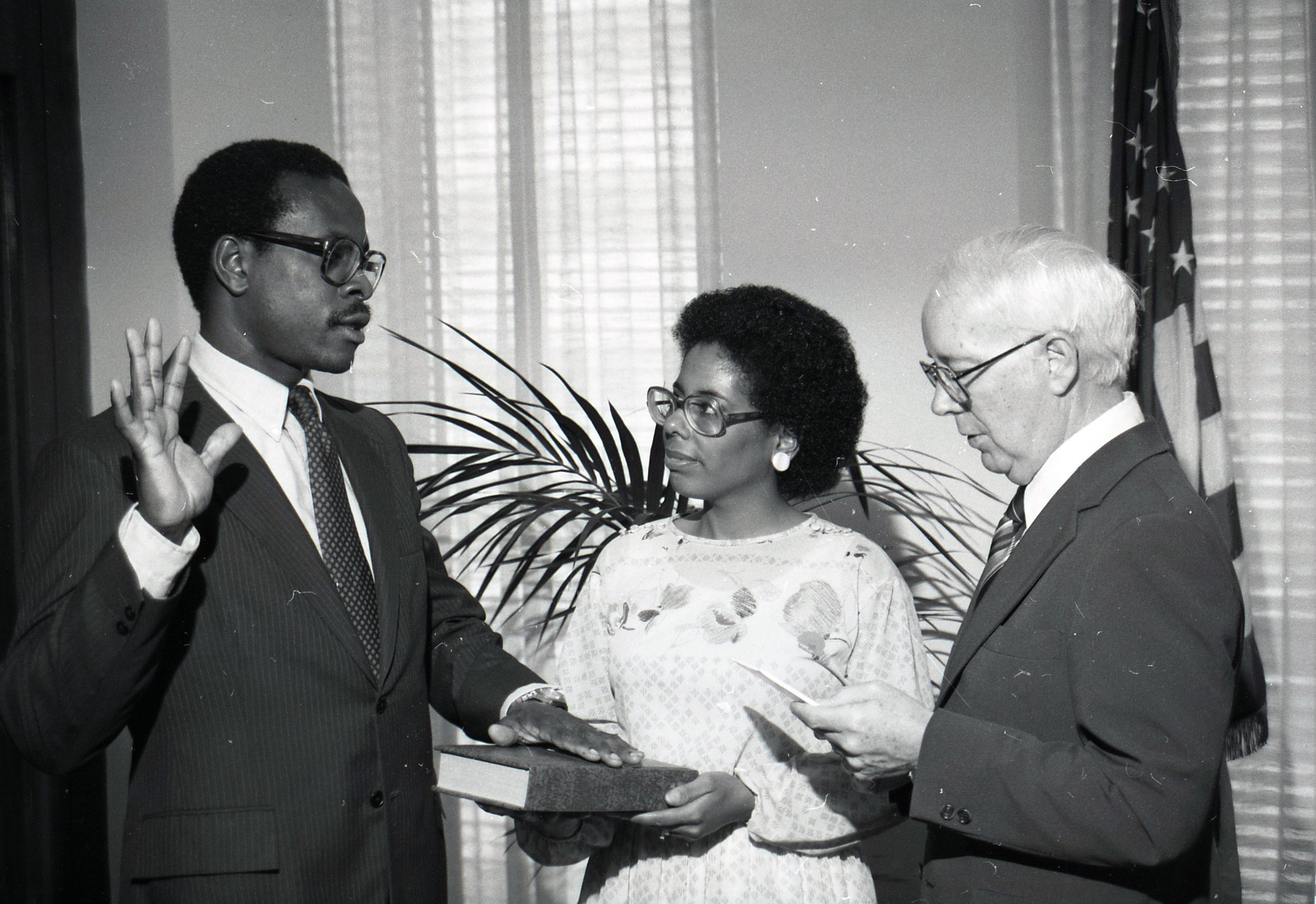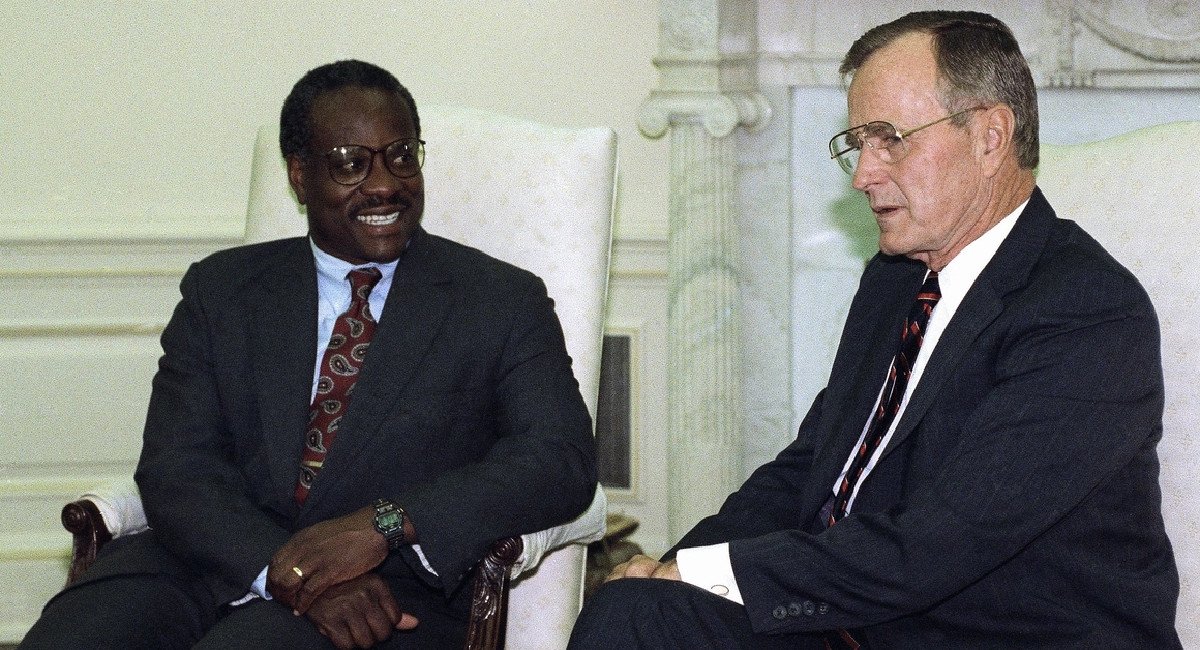CLARENCE THOMAS
Appointed by: George H.W. Bush
Sworn in: October 23, 1991
Preceded by: Thurgood Marshall
1991 — Present
Associate Justice
Clarence Thomas was born on June 23, 1948 in Pin Point, a small town in Georgia founded by freedmen. Thomas’ mother, Leola, worked as a maid in Savannah but struggled to provide for her children as a single parent, since Thomas’ father had abandoned the family. In 1955, Thomas and his brother began living with his grandparents, Myers and Christine Anderson, who ultimately raised him. After moving in with his grandparents, Thomas was exposed to amenities such as indoor plumbing for the first time.
Thomas has described his grandfather as the most influential person in his life. Despite having almost no formal education, Thomas’ grandfather built an extremely successful business that enabled him to live comfortably. He taught Thomas the value of hard work, self-reliance, and that “all of our rights as human beings came from God, not man.” During the Civil Rights movement in Georgia, Thomas’ grandfather took them to NAACP meetings and even used his own money to bail out protestors. Thomas attended a predominantly black High School for two years before his grandfather sent him to St. John Vianney Minor Seminary, where he was the first black student. Thomas excelled academically and spent much of his time at the Carnegie Library, which was the only library for Blacks in the area at the time.
After high school, Thomas became the first member of his family to attend college when he enrolled in the Conception Seminary College in Missouri. Thomas intended to become a Priest, but after the assassination of Martin Luther King Jr. and subsequent displays of racism on campus, he left the seminary. In the fall of 1968, Thomas transferred to the College of the Holy Cross in Massachusetts on a full academic scholarship. At Holy Cross, Thomas founded the Black Student Union and became a vocal activist on campus. He was also a member of Alpha Sigma Nu, the Jesuit Honor Society, and the Purple Key Society. In 1971, Thomas graduated ninth in his class with a degree in Bachelor of Arts in English, cum laude. Thomas was accepted to Yale Law School, Harvard Law School, and the University of Pennsylvania Law School, but he ultimately enrolled at Yale. In law school, Thomas excelled academically but found it difficult to connect with students from upper-class backgrounds. He graduated from Yale in 1974.
Personal Life and Education
Thomas being sworn in as Assistant Secretary of Education for the Office for Civil Rights in 1981 | Credit: U.S. Department of Education
After law school, Thomas accepted a position from Missouri Attorney General John Danforth to serve as an Assistant Attorney General. Thomas worked in this position until Danforth joined the Senate in 1977, after which he began working for Danforth as a legislative aide. As a legislative aide, Thomas handled energy issues for the Senate Commerce Committee and gained a popular reputation amongst Republicans.
In May of 1981, President Ronald Reagan nominated Thomas to become Assistant Secretary of Education for the Office of Civil Rights. Thomas was initially hesitant to accept the nomination, but he did so after Danforth encouraged him to. Thomas was confirmed by the Senate Labor and Human Resources Committee in June and served as assistant secretary for a few months before being offered a new position as the chairman of the Equal Employment Opportunities Commission. In this role, Thomas ensured compliance with the Civil Rights Act of 1964 and was credited with increasing the efficiency of the commission. Thomas served in this role from 1982 to 1990.
In October of 1989, President George H.W. Bush nominated Thomas to fill the seat left vacant by Judge Robert Bork on the United States Court of Appeals for the D.C. Circuit. On March 6, 1990, the Senate voted 98-2 to confirm Thomas’ nomination. During his time on the D.C. Circuit, Thomas served with Justice Ruth Bader Ginsburg and authored 19 opinions.
Career
In July of 1990, Thomas was on the shortlist to replace retiring Justice William Brennan, but President Bush ultimately nominated Justice David Souter because his advisors believed that Thomas didn’t have enough experience on the bench. In June of the next year, however, Justice Thurgood Marshall announced his retirement. With more time on the bench, President Bush nominated Thomas to fill the vacancy on the Court. When Bush announced Thomas’ nomination, he commented that he was “the best qualified at this time.”
Liberal interest groups quickly organized against Thomas, hoping to implement the same strategy used to thwart Judge Robert Bork’s nomination. On the other hand, supporters of his nomination noted his personal history and gathered support from African American interest groups, including the NAACP.
In September of 1991, Thomas testified before the Senate Judiciary Committee. Recalling the experience of Judge Bork just four years earlier, Thomas was hesitant in answering questions about specific legal philosophies from Senators on the committee. On September 27, a motion to send Thomas’ nomination forward with a favorable recommendation failed by a 7–7 vote. The committee ultimately voted 13–1 to send it to the full Senate without any recommendation.
As the Senate was debating whether or not to give final approval to Thomas's nomination, an FBI interview with Anita Hill, a former colleague of Thomas at the EEOC, was leaked to the press, and allegations of sexual harassment were revealed. In October, the Senate Judiciary reconvened to hold a hearing on the allegations. Thomas testified before the committee again, unequivocally denying the allegations and refusing to allow Senators to probe into his personal life. The Senate ultimately confirmed Thomas by a vote of 52 to 48. His nomination was the longest in history, second only to Robert Bork’s.
Nomination to the Court
Clarence Thomas speaking with then-Senator Joe Biden during his Senate confirmation hearings | Credit: John Duricka, Associated Press
Opinions by Justice Thomas
Matal v. Tam (2017)
Ramos v. Louisiana (2020)
Mahoney Area School District v. B.L. (2021)
New York State Rifle & Pistol Association v. Bruen (2022)
Garland v. Cargill (2024)
Gall v. United States (2008)
Melendez-Diaz v. Massachusetts (2009)
McDonald v. Chicago (2010)
Brown v. Entertainment Merchants (2011)
Salinas v. Texas (2013)












